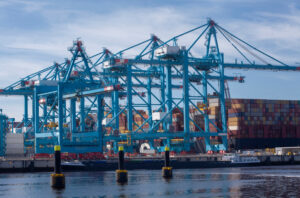The British Ports Association (BPA) has urged the UK government to not limit its freeport plan to 10 ports, insisting that all the UK’s 125 cargo-handling ports should be given the opportunity to become freeports.
In a statement, the BPA called upon the government to ‘maximise’ its ambition and remove the cap on potential number of freeports.
What are the biggest ports in the UK?
Going further, it said it wanted ministers to include a “much broader package of measures that would benefit a wide range if different UK ports”.
“Freeports are a transformational opportunity for some UK ports that could unleash growth and development in some of the UK’s most deprived coastal areas,” said Richard Ballantyne, CEO, BPA.
“We will be making the case for a package of maximum ambition in both scope and scale.
“Ports handle 95% of the UK’s trade and we will be putting forward a bold set of measures that support a variety of models to fit different ports and the industries that rely on them.”
However, the BPA also said freeports will not prevent certain trade frictions and that it will continue to call for a “strong trade agreement with the EU” to ensure tariffs are kept to a minimum.
The statement came after the UK unveiled its freeport consultation to “fully understand” the maritime industry’s thoughts on the idea.
The consultation period will last until 20 April 2020, until which time industry stakeholders can voice their opinion on the measures.
The government’s initial plan was to launch 10 freeports around the UK to ease the movement of goods and generate revenue in deprived and coastal communities.
A freeport or free zone is a specifically designated area where tariffs on imports are either substantially cut or waived in the hope of stimulating economic growth and trade.









